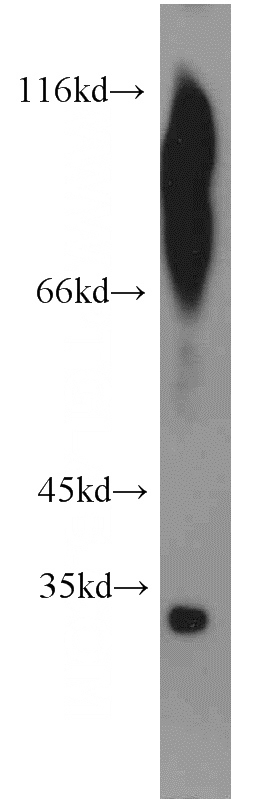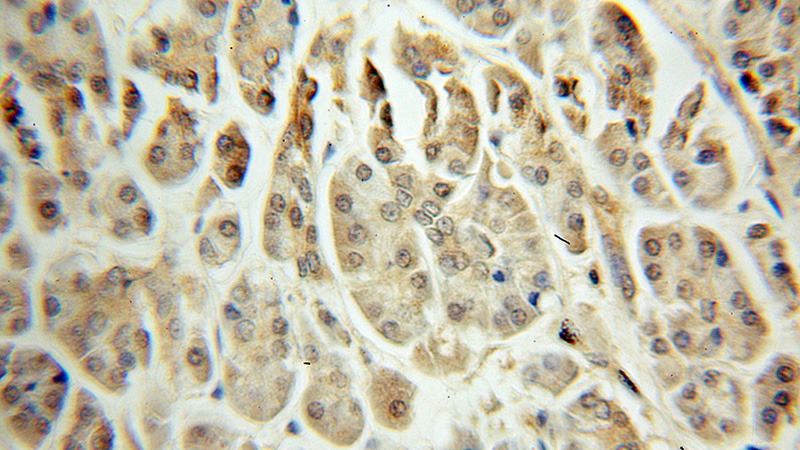-
Product Name
MEST antibody
- Documents
-
Description
MEST Rabbit Polyclonal antibody. Positive IHC detected in human pancreas cancer tissue. Positive WB detected in human testis tissue, mouse testis tissue, PC-3 cells. Positive IP detected in PC-3 cells. Observed molecular weight by Western-blot: 34kd
-
Tested applications
ELISA, WB, IHC, IP
-
Species reactivity
Human,Mouse,Rat; other species not tested.
-
Alternative names
DKFZp686L18234 antibody; MEST antibody; PEG1 antibody
-
Isotype
Rabbit IgG
-
Preparation
This antibody was obtained by immunization of MEST recombinant protein (Accession Number: NM_002402). Purification method: Antigen affinity purified.
-
Clonality
Polyclonal
-
Formulation
PBS with 0.1% sodium azide and 50% glycerol pH 7.3.
-
Storage instructions
Store at -20℃. DO NOT ALIQUOT
-
Applications
Recommended Dilution:
WB: 1:200-1:2000
IP: 1:200-1:2000
IHC: 1:20-1:200
-
Validations

human testis tissue were subjected to SDS PAGE followed by western blot with Catalog No:112512(MEST antibody) at dilution of 1:500

Immunohistochemical of paraffin-embedded human pancreas cancer using Catalog No:112512(MEST antibody) at dilution of 1:100 (under 10x lens)

IP Result of anti-MEST (IP:Catalog No:112512, 3ug; Detection:Catalog No:112512 1:500) with PC-3 cells lysate 1720ug.
-
Background
MEST(Mesoderm-specific transcript homolog protein) is also named as PEG1 and belongs to the AB hydrolase superfamily. The gene is a imprinting gene, which is associated with growth of mesodermal origin cells(PMID:20339302) and plays important roles in embryo development(PMID:21375506). It is also a novel regulator of Wnt/CTNNB signalling during adipogenic differentiation(PMID:21375506). It has 3 isoforms produced by alternative splicing and the full length protein has a glycosylation site.
-
References
- Li H, Takai N, Yuge A. Novel target genes responsive to the anti-growth activity of triptolide in endometrial and ovarian cancer cells. Cancer letters. 297(2):198-206. 2010.
- MacIsaac JL, Bogutz AB, Morrissy AS, Lefebvre L. Tissue-specific alternative polyadenylation at the imprinted gene Mest regulates allelic usage at Copg2. Nucleic acids research. 40(4):1523-35. 2012.
Related Products / Services
Please note: All products are "FOR RESEARCH USE ONLY AND ARE NOT INTENDED FOR DIAGNOSTIC OR THERAPEUTIC USE"
